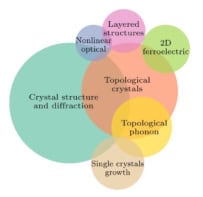
Increased collaboration between different areas of materials research and development will be needed if the UK is to remain a leader in the field. That is according to the National Materials Innovation Strategy, which claims to be the first document aimed at boosting materials-based innovation in the UK. Failing to adopt a “clear, national strategy” for materials will hamper the UK’s ability to meet its net-zero and other sustainability goals, the strategy says.
Led by the Henry Royce Institute – the UK’s national institute for advanced materials – the strategy included the input of over 2000 experts in materials science, engineering, innovation, policy and industry. It says that some 52 000 people in the UK work or contribute to the materials industry, adding about £4.4bn to the UK economy each year. Of the 2700 companies in materials innovation in the UK, 70% are registered outside of London and the South East, with 90% being small and medium-sized enterprises.
According to the 160-page strategy, materials innovation touches “almost every strategically important sector in the UK” and points to “six areas of opportunity” where materials can have an impact. They are: energy; healthcare; structural innovations; surface technologies; electronics, telecommunications and sensors; and consumer products, packaging and specialist polymers.
The strategy, which is the first phase of an effort to speed up materials development in the UK, calls for a more collaborative effort between different fields to help spur materials innovation that has “traditionally been siloed across sectors”. It claims that every materials-related job results in 12 additional jobs within “materials innovation business”, adding that “a commitment to materials innovation” by the UK could double the number of materials-specific roles by 2035.
“Advanced materials hold the key to finding and delivering solutions to some of the most pressing national and global challenges of today and directly contribute billions to our national economy,” says materials engineer David Knowles, who is chief executive of the Henry Royce Institute. “But to unlock the full value of materials we must break down traditional long-standing silos within the industry. This strategy has kickstarted that process.”



